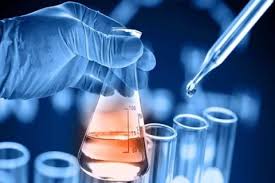 Organic substances are essential components of cells and play crucial roles in various cellular processes. The synthesis of organic substances in the cell involves complex biochemical pathways and reactions. Let's explore this topic further.
Organic substances are essential components of cells and play crucial roles in various cellular processes. The synthesis of organic substances in the cell involves complex biochemical pathways and reactions. Let's explore this topic further.
The cell obtains and stores energy in the form of ATP through me
The synthesis of organic substances in the cell is a fundamental process that allows cells to grow, maintain their structure, and carry out their functions.
Carbohydrates, proteins, lipids, and nucleic acids are the major types of organic substances synthesized in cells. Here are some key points about the synthesis of these substances:
-
Carbohydrate Synthesis:
- Carbohydrates serve as a source of energy and building blocks for complex organic compounds in living systems
-
Lipid Synthesis:
- Lipids are synthesized through various pathways, including fatty acid synthesis and cholesterol synthesis.
-
These pathways involve enzymes and specific me
tabolic reactions that occur in different cellular compartments.
-
Nucleic Acid Synthesis:
-
Nucleic acids, such as DNA and RNA, are synthesized through processes like DNA replication and transc
ription. -
These
processes involve the copying and transc
ription of genetic information, allowing cells to replicate and express their genetic material.
-
Nucleic acids, such as DNA and RNA, are synthesized through processes like DNA replication and transc
It is important to note that the synthesis of organic substances in cells is tightly regulated and coordinated. Cells have intricate control mechanisms to ensure the synthesis of the right substances at the right time and in the right quantities.
Overall, the synthesis of organic substances in the cell is a complex and highly regulated process. It involves various biochemical pathways and reactions that allow cells to produce the necessary components for growth, maintenance, and function.

 League of Angels
League of Angels
 Felspire
Felspire
 Clash of Avatars
Clash of Avatars
 Empire:
Empire:
 Tiny Mighty
Tiny Mighty
 Lords Road
Lords Road
 Siegelord
Siegelord
 Shaikan
Shaikan
 DragonCity
DragonCity
